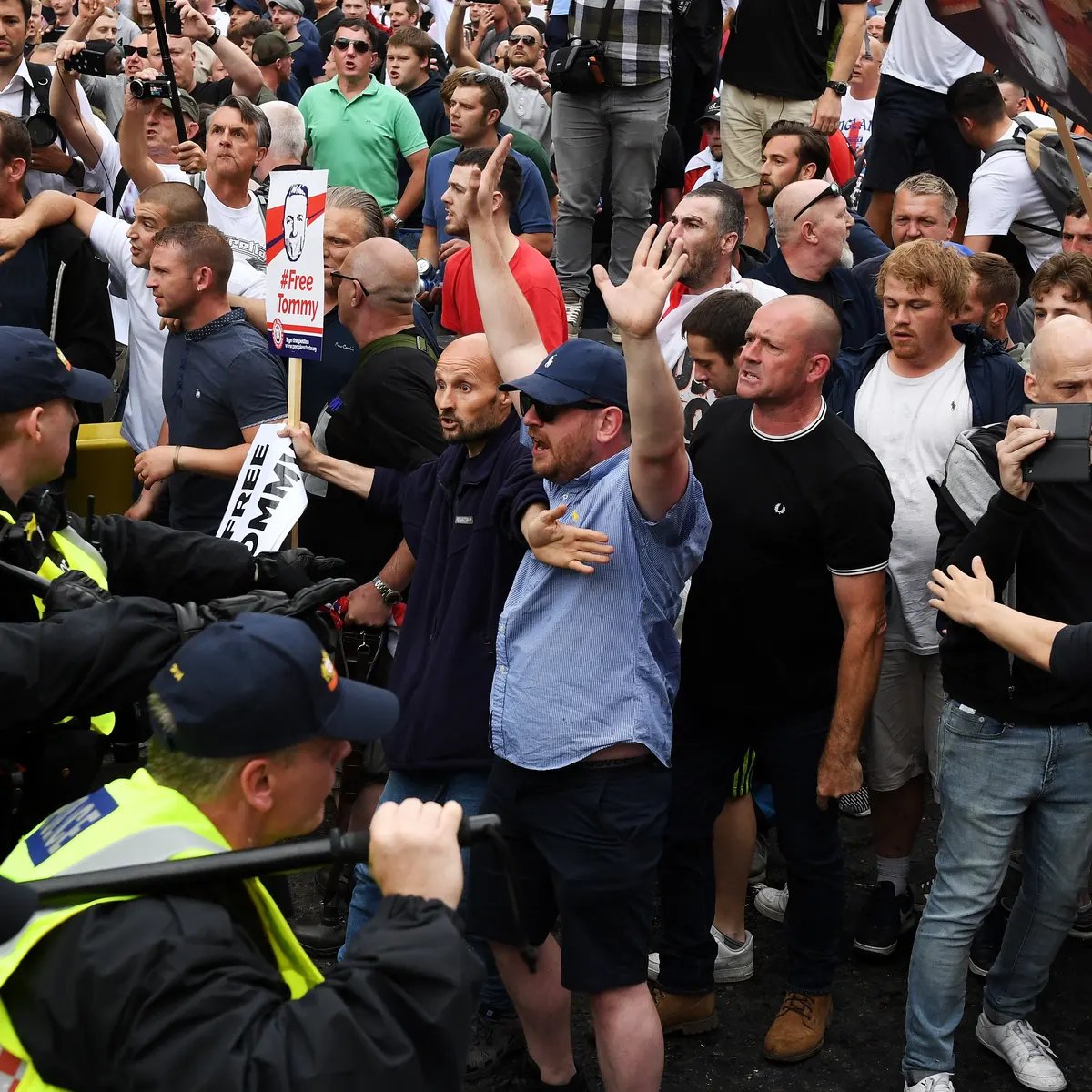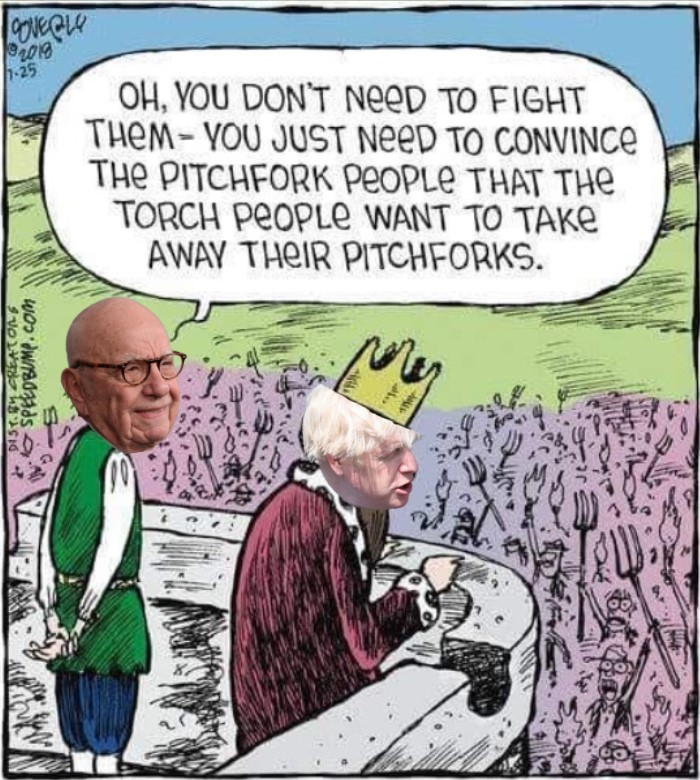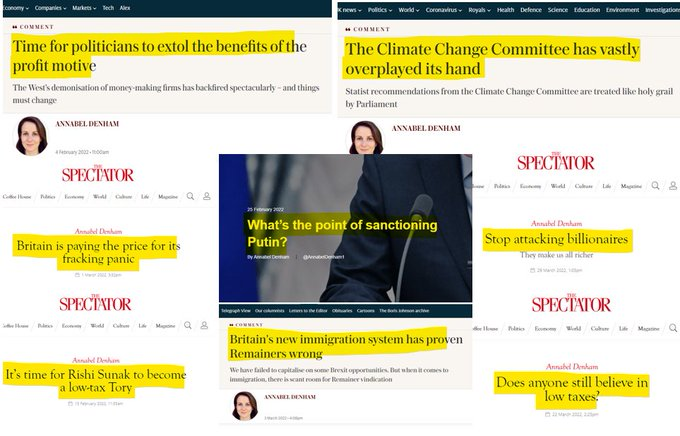
#THREAD
Fear & Loathing across Party Lines: New Evidence on Group Polarization
Research from 2014 revealed that in the US, political #partisanship was already in a harmful downward spiral. Since then, #polarisation of the electorate in the US & UK has dramatically increased.
Fear & Loathing across Party Lines: New Evidence on Group Polarization
Research from 2014 revealed that in the US, political #partisanship was already in a harmful downward spiral. Since then, #polarisation of the electorate in the US & UK has dramatically increased.
Evidence from the 2014 study demonstrated that hostile feelings for the opposing party are ingrained or automatic in voters' minds, & that affective polarisation based on party is just as strong - often stronger - as polarisation based on race. 

This matters not least because party cues exert powerful effects on nonpolitical judgments & behaviours, leaving voters open to manipulation.
In the UK & US, political actors know that political partisans discriminate against opposing partisans, & some unmercifully exploit this.


In the UK & US, political actors know that political partisans discriminate against opposing partisans, & some unmercifully exploit this.



The willingness of partisans to display open animus for opposing partisans can be attributed to the absence of norms governing the expression of negative sentiment - increased partisan affect provides an incentive for elites to engage in confrontation, rather than cooperation. 

More research followed in 2019: Fear & loathing across party lines’ (also) in Europe: Affective polarisation in European party systems.
Many scholars have studied increased partisan animosity between Democrats & Republicans. They term this phenomenon ‘affective polarisation’.
Many scholars have studied increased partisan animosity between Democrats & Republicans. They term this phenomenon ‘affective polarisation’.

The surge in partisan affective polarisation is perceived to be highly problematic, as the evidence is overwhelming that it has a negative impact on not just the functioning of the party system, but also society at large. 

The 2019 study applied the concept of affective polarisation to European party systems, & introduced the Affective Polarisation Index (API) that allows for measuring & comparing levels of affective polarisation also in multiparty systems.
Results indicated that affective polarisation is acutely present in European party systems, as partisans are often extremely hostile towards competing parties.
The most affectively polarised countries in 2019 were in Central Eastern & Southern Europe.
The most affectively polarised countries in 2019 were in Central Eastern & Southern Europe.
In Central Eastern & Southern Europe, the degree of affective polarisation was even higher than it is in the US, while perhaps surprisingly (at least to us in the UK), Northwestern European countries are less polarised & seemingly more moderate in terms of partisan feelings.
Affective polarisation is significantly correlated with ideological polarisation, but the relationship between the two appears to be conditional, in part on the political & electoral systems in place in particular countries.
In some Western European political systems, ideological polarisation does not lead itself to strong interparty hostility, while in Central Eastern Europe a high degree of affective polarisation can be present even in ideologically centrist party structures.
Other research using the Affective Polarisation Index (API) has explored whether social media fuels polarisation in society: Affective polarization in the digital age: Testing the direction of the relationship between social media and users’ feelings for out-group parties (2020).
This study found that contrary to the widespread belief that social media fuels polarisation in society, the results lend support to the hypothesis that it was the level of affective polarisation that affected subsequent use of social media.
The results furthermore reveal heterogeneous patterns among individuals across different social media platforms, & calls into question the predominating assumption in previous research that social media is a major driver of polarisation in society.
journals.sagepub.com/doi/full/10.11…
journals.sagepub.com/doi/full/10.11…
But scholars agree increasing political polarisation is dangerous, & harmful for individuals & society.
Imho, in Britain - particularly since the EU referendum was announced - Affective Polarisation has been deliberately stoked, in order to divide voters & protect elite power.
Imho, in Britain - particularly since the EU referendum was announced - Affective Polarisation has been deliberately stoked, in order to divide voters & protect elite power.

This increasing polarisation has been amplified & accelerated by the adoption of what Steve Bannon called 'flooding the zone with shit' - a political strategy designed to divides voters & reduce the effectiveness of moderate respectful persuasion.
https://twitter.com/docrussjackson/status/1487019337508663299?s=20&t=AzoEJYZIgdRV6hk0rZFrlQ
In 2020, the match-making website OkCupid asked 5 million hopeful daters around the world: “Could you date someone who has strong political opinions that are the opposite of yours?” 60% said no, up from 53% a year before.
theguardian.com/books/2021/nov…
theguardian.com/books/2021/nov…
Tajfel & Turner's 'Social Identity theory', posits that intergroup bias results in positively evaluating one's ingroup relative to the outgroup (ie ingroup favoritism) & negatively evaluating the (motives/characteristics etc) of the outgroup.
sciencedirect.com/topics/social-…
sciencedirect.com/topics/social-…
People tend to like their own groups a great deal, & in 1980s America research showed that while levels of in-party warmth were strong & have remained stable since then, feelings towards the out-party members used to be fairly neutral, but since then have plummeted.
The dynamics are similar in the UK, where the Brexit vote was deeply divisive. A 2019 study revealed that while UK citizens were not particularly identified with political parties, they held strong identities as remainers or leavers.
Supporting the main hypothesis of Social Identity theory, both Remainers' & Leavers' perceptions were predictably sharply partisan, with each side regarding its supporters as intelligent & honest, while viewing the other as selfish & close-minded.
But we rarely talk about this!
But we rarely talk about this!
The consequences of hating political out-groups are many & varied.
For example, it can lead people to support corrupt lying politicians, because losing to the other side seems unbearable.
It can make compromise impossible, even when you have common political ground.
For example, it can lead people to support corrupt lying politicians, because losing to the other side seems unbearable.
It can make compromise impossible, even when you have common political ground.
During a pandemic, it can even lead people to disregard advice from health experts if they are embraced by opposing partisans.
Are you beginning to understand the real dangers of partisan politics & our polarizing media?
Are you beginning to understand the real dangers of partisan politics & our polarizing media?
Affective polarisation is emotional & identity-driven – “us” versus “them”. Recall this is distinct from 'ideological polarisation', which refers to differences in policy preferences. So do we disagree about the actual issues as much as our feelings about each other suggest?
This is where we can find some hope: despite large differences in opinion between politicians & activists from different parties, there is often less polarisation among regular voters on matters of policy.
When pushed for their thoughts about specific ideas or initiatives, citizens with different political affiliations often turn out to agree more than they disagree. Even groups described pejoratively as extreme Left & Right increasingly agree on a wide range of significant issues.
For example, both agree that: the #NHS is wonderful; the political elite are increasingly untrustworthy; climate change is a big problem; a low wage insecure work economy is bad; news media is overly partisan; corporations have too much power; wealth inequality is out of control.
I've written extensively elsewhere about the harm that flows from the media monetization of divisive clickbait outrage, & how we all have a responsibility to respond appropriately to it - that is, to resist our impulses & simply ignore the provocations.
https://twitter.com/docrussjackson/status/1362732915654881296?s=20&t=AzoEJYZIgdRV6hk0rZFrlQ
As psychologist Anne Wilson and her colleagues put it in a recent paper: “Partisans often oppose one another vehemently even when there is little actual daylight between their policy preferences, which are often tenuously held and contextually malleable.”
As Dominic Packer & Jay Van Bavel suggest, the relative lack of ideological divergence comes as a surprise to partisans themselves.
This is the phenomenon of 'false polarisation', whereby there is widespread misperception of how much people on the left and the right are divided.
This is the phenomenon of 'false polarisation', whereby there is widespread misperception of how much people on the left and the right are divided.
When asked to estimate how many Republicans earn more than $250,000 a year, Democrats guessed 38%. In reality it is 2%. Conversely, while about 6% of Democrats self-identify as members of the LGBT community, Republicans believed it was 32%.
Partisan media fuels misconceptions.
Partisan media fuels misconceptions.

Partisans are especially likely to overestimate how many of their political opponents hold extreme opinions. Those overestimates result in a disinclination to engage with out-party members, which in turn prevents people from forming more accurate impressions of the other side.
So why do citizens so dislike one another if they aren’t necessarily deeply divided on policy matters?
Politicians exaggerate differences in order to motivate & mobilise voters, rallying support by portraying themselves as bulwarks against the barbarians on the other side.
Politicians exaggerate differences in order to motivate & mobilise voters, rallying support by portraying themselves as bulwarks against the barbarians on the other side.
Divisiveness also plays well on print, broadcast & especially social media, where extreme voices are amplified. Moral outrage is particularly likely to go viral, & thus drive ad revenue/support/donations.
Research examined more than 2.5 million posts on Twitter & Facebook. Posts were significantly more likely to be shared or RTd if they referenced political opponents. Every word about the out-group increased the odds of a post being shared by 67%.
In this increasingly toxic environment, reducing false polarisation & affective polarisation are major challenges.
Sadly, the idea that if people were only to expose themselves to perspectives from the other side, it would breed greater understanding & cooperation, is flawed.
Sadly, the idea that if people were only to expose themselves to perspectives from the other side, it would breed greater understanding & cooperation, is flawed.
Research & experiments consistently show that when what you see from the other side of the political divide strikes you as biased, offensive, or obnoxious, not only does it not endear you to their perspectives, it can actually increase partisan affective polarisation.
Some research shows that aggressive & unkind messages neither reduce trust in politicians or increase affective polarisation - we expect incivility.
But when we see polite & respectful messages, we feel more trust towards politicians, becoming less affectively polarised.
But when we see polite & respectful messages, we feel more trust towards politicians, becoming less affectively polarised.
Some simple actions follow from this:
We shouldn't reward divisive rhetoric from political & media elites with “likes”. Instead, we should follow politicians & pundits who embody norms of respect & civility, even when they disagree on policy matters.
We shouldn't reward divisive rhetoric from political & media elites with “likes”. Instead, we should follow politicians & pundits who embody norms of respect & civility, even when they disagree on policy matters.
We might benefit from taking a break from social media altogether. Economists found that when people were encouraged to disconnect from Facebook for a month they spent less time online & were less politically polarised.
They also experienced improved psychological wellbeing.
They also experienced improved psychological wellbeing.
No one is worried that our societies are insufficiently polarised. But because so much of the polarisation is about emotions & identities rather than issues, it is still not clear that citizens are presented with good choices or that important issues are being deeply debated.
We should:
- demand that politicians & pundits model respectful behaviour, & get into policy specifics
- focus more on actual ideas for solving actual problems
- not reward deliberately provocative & divisive voices
- reflect on our own role in driving partisan polarisation.
- demand that politicians & pundits model respectful behaviour, & get into policy specifics
- focus more on actual ideas for solving actual problems
- not reward deliberately provocative & divisive voices
- reflect on our own role in driving partisan polarisation.
• • •
Missing some Tweet in this thread? You can try to
force a refresh












